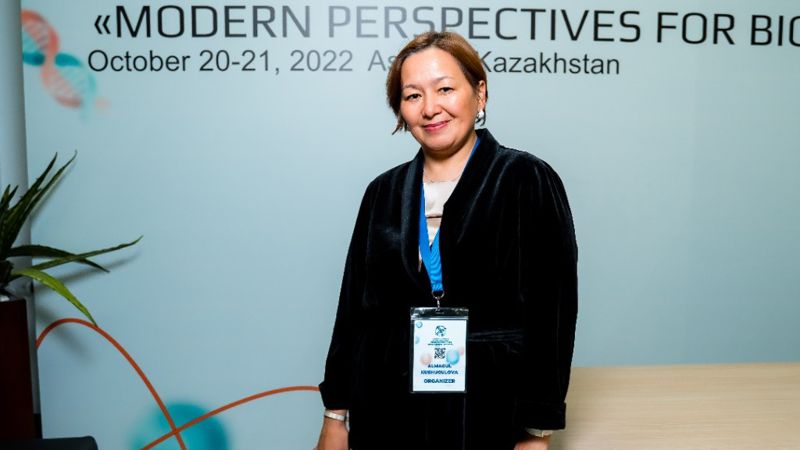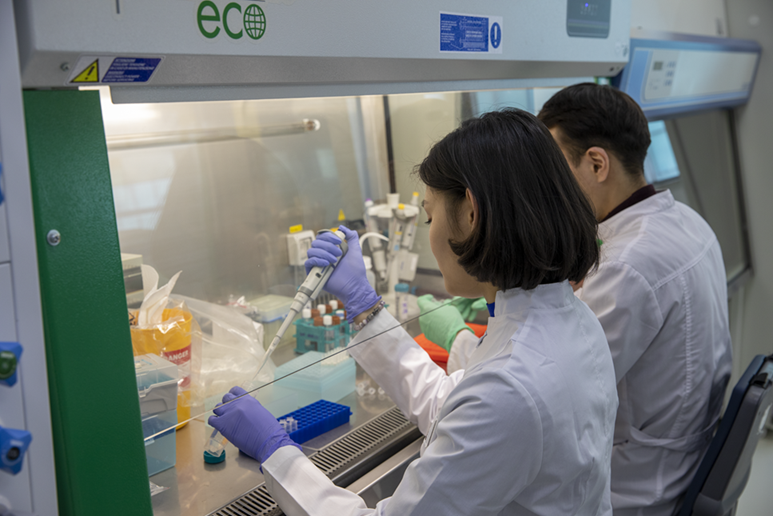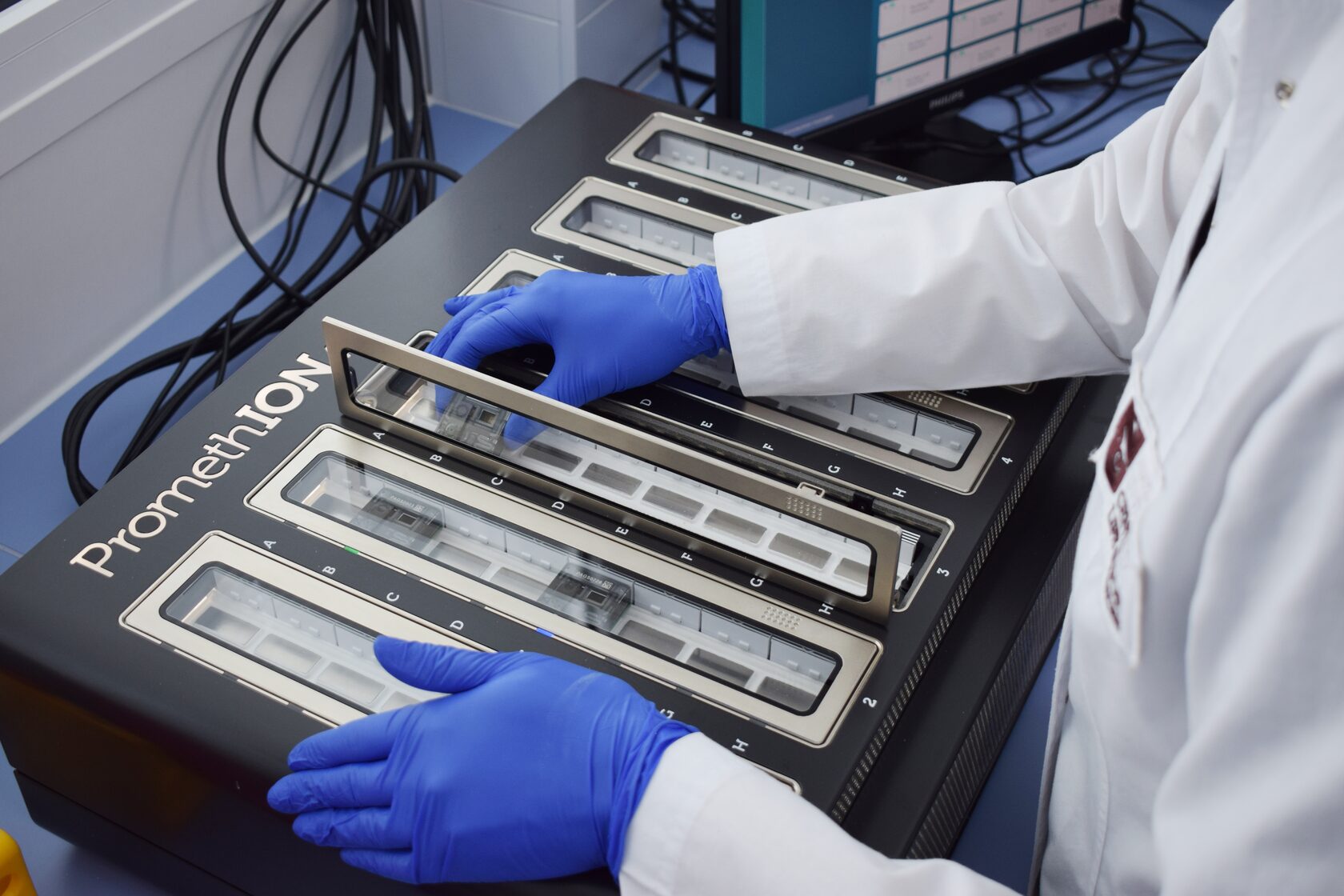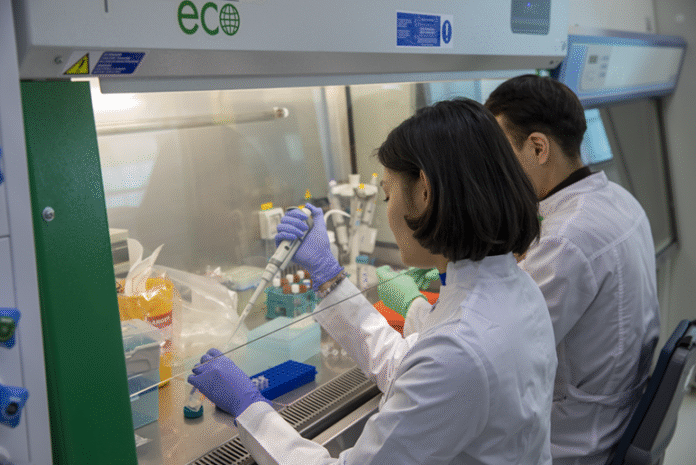ASTANA — What if the key to fighting disease, aging well, and managing the effects of climate change was not a miracle drug, but microbes? At Nazarbayev University’s (NU) Microbiome Laboratory, that idea drives everything.

Photo credit: Nazarbayev University
Founded in 2011 and led by Professor Almagul Kushugulova, the lab has grown from a modest research group into a pioneering center that is transforming Kazakhstan’s presence in global science.
“We’re not just decoding microbiomes, we’re rewriting the future of public health, starting here at home,” says Dr. Kushugulova, who balances roles as a mother, scientist, and international research leader.
From its start under the Department of Translational Medicine, the lab has evolved rapidly. By 2012, it was presenting at the International Human Microbiome Congress in Paris, and in 2015, it joined the prestigious Human Microbiome Project. Today, it represents Central Asia, the Caucasus, and Russia on the board of the International Human Microbiome Consortium.

Professor Almagul Kushugulova. Photo credit: Nazarbayev University
Since 2022, the lab has been part of the National Laboratory Astana at NU, expanding its mission under the global One Health concept, which sees human, animal, and environmental health as interconnected.
“Microbes are everywhere—in our bodies, in the soil, on our food. If we understand them, we can make smarter decisions about health, agriculture, and sustainability,” Kushugulova explains.
Microbiome and enterotypes: the gut’s fingerprint
The human microbiome—mainly the bacteria in our gut—acts like a microscopic command center. It affects digestion, immunity, metabolism, and even mental health. “It is the only objective marker of nutrition,” Kushugulova says, noting that her lab focuses on three key areas: autoimmune disorders, cardiovascular disease, and child health, especially the first 1,000 days of life, which are critical for long-term well-being.
But the research doesn’t stop at the gut. “We’ve expanded into soil, plants, and animals,” she says. “You can’t improve human health if you ignore the environment.” This broader scope has placed the lab in global climate health studies, where microbes are now seen as potential early warning systems for environmental stress.
One of the lab’s most fascinating research areas is enterotyping. Much like blood types, every person has one of three major enterotypes—distinct bacterial ecosystems in the gut. These microbial blueprints influence disease risk, immune responses, and how we metabolize food.

Photo credit: Nazarbayev University
“Your microbiome reflects where you live, what you eat, and how you interact with your environment,” says Kushugulova. Her team aims to make enterotype-based health profiling part of Kazakhstan’s public health system, allowing for personalized medicine and dietary recommendations.
She stresses the regional value: “We live in a unique part of the world. Our traditional foods—like fermented mare’s milk—have untapped potential for functional treatments. These local products could become the future of nutrition-based therapies.”
From petri dish to public benefit
This is not theoretical science. The lab has already introduced products like synbiotic yogurt and metabiotics from mare’s milk into the Kazakh market—functional foods designed to improve gut health and immunity. Several diagnostic screening tools for early disease detection are also being prepared for launch.
“We want to offer affordable, locally developed solutions,” Kushugulova says. “Kazakhstan shouldn’t have to rely on imported medical technology.” Her lab’s innovations aim to reduce disease incidence and improve quality of life, especially in rural and underserved areas.

Photo credit: Nazarbayev University
The lab’s success is driven by a multidisciplinary team, including microbiologists, molecular biologists, immunologists, and machine learning experts. For different projects, they also collaborate with doctors, ecologists, and soil scientists from across Central Asia and the Caucasus.
“It’s not just about science,” Kushugulova explains. “It’s about building a system of knowledge that brings together health, technology, agriculture, and environment.”
These collaborations are supported by NU’s infrastructure, with English-language instruction and faculty from top global institutions. “We don’t need to go abroad anymore to do world-class research,” she says. “The world is starting to come to us.”
Women in science: a personal journey
For Dr. Kushugulova, the journey into microbiome research was unexpected. Trained as a pediatrician, she was drawn into research during her Ph.D., where she became fascinated by the connection between gut flora and terminal diseases. That curiosity turned into a mission.
As a woman in science, she has faced challenges, especially while raising young children. “The hardest time was when my kids were little,” she recalls. “But they became my biggest inspiration. Today, they’re proud of what I do. Sometimes their friends even volunteer in our lab out of interest.”
To young women considering science, her message is clear: “You don’t have to prove anything to anyone. Compete only with yourself. Set bold goals, even if they seem impossible. There are no limits in science.”
Why it matters for Kazakhstan—and the world
Every microbiome is unique, but geography plays a central role in shaping it. That’s why NU’s team is building the first reference microbiome for Central Asia and the Caucasus—an invaluable tool for both regional and international research.
NU’s rise as a research hub is emblematic of broader change. Kazakh scientists are now publishing in top-tier journals and winning global grants. Collaborative funding models are also empowering universities outside the capital to join international projects.
“Science in Kazakhstan is growing fast,” Kushugulova says. “We’re moving from being consumers of knowledge to producers.”
At the heart of this transformation is NU, a young but ambitious university that blends global expertise with local relevance. And in the petri dishes and DNA sequencers of its Microbiome Lab, the future of public health is quietly taking shape, one microbe at a time.






